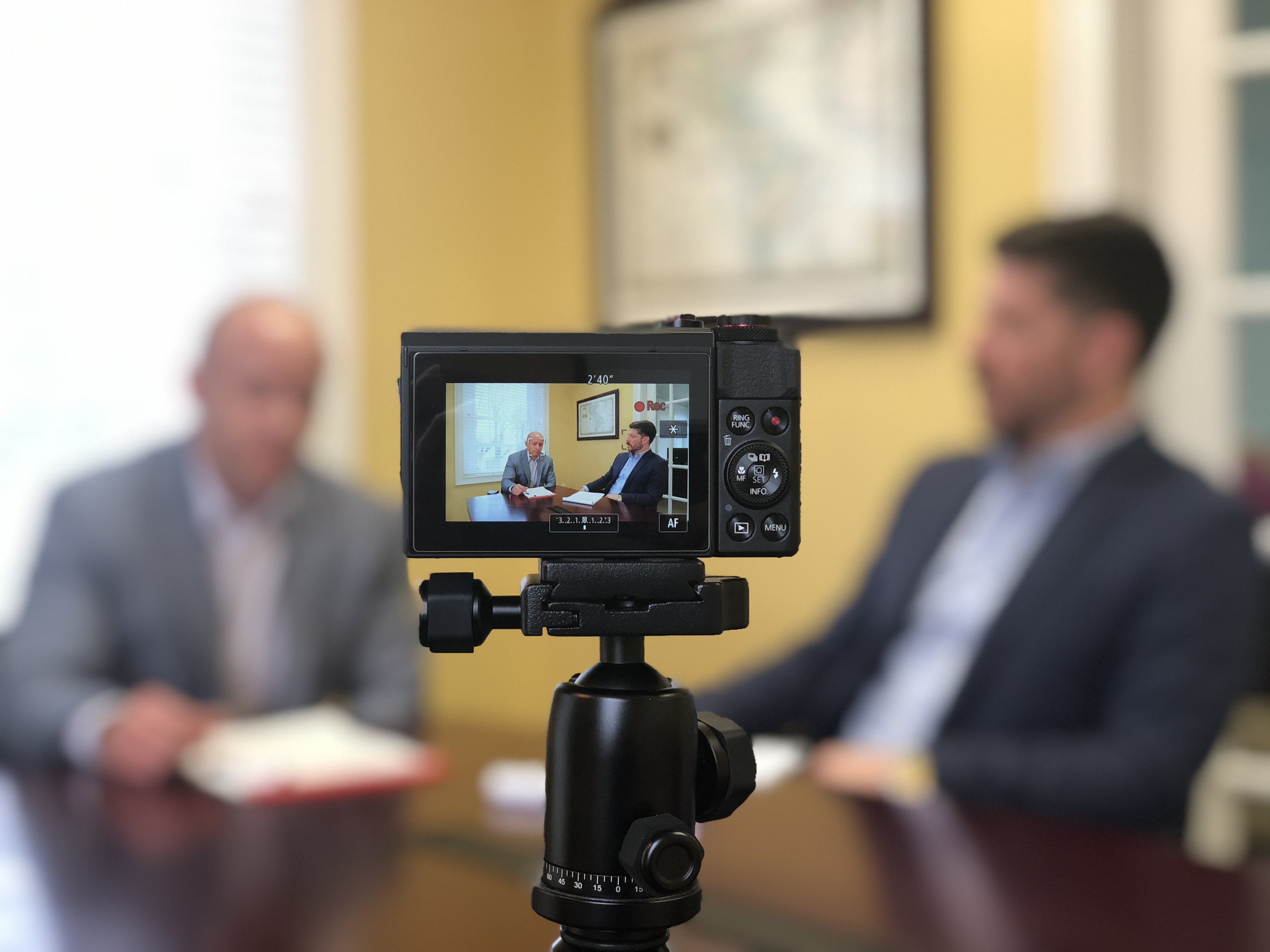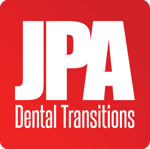JPA's Joseph Jordan sat down with Brian Cogan of Bank of America's Practice Solutions and they discussed dental lending for practice buyers. If you want to hear Brian's take on what first-time buyers should expect when borrowing for their practice purchase, his forecast on the future of the dental industry, and what makes a person an attractive borrower, watch the full video here.
Follow the Discussion:
Joe Jordan: Today, I have the pleasure of being joined by Brian Cogan with Bank of America Practice Solutions. Brian and I have known each other for a number of years, and we get together a couple times a month to keep each other updated as to where the industry is. Having these meet-ups helps us stay up-to-date on what's happening in the industry and what's on the forefront.
Brian is one of the first touches that a lot of our clients or potential new owners will have. So, I appreciate the fact that you are letting us record this conversation. I think it is a good for young buyers to hear about what the bank expects from a lending standpoint.
Brian Cogan: Sure.
Joe: I've compiled a list of common questions that we get. You have a really good insight into each of these. So to start off -- what is the current appetite of lending in the dental industry? What do you see? Where's the market? What's going on?
Brian: We're probably in one of the the best markets that we've seen in a long time, and probably in most of our lifetimes. From a dental lending perspective, banks and lenders like Bank of America Practice Solutions are very aggressive in the market to lend to dentists in this market. We are seeing from a lost rate perspective some of the lowest loss rates probably ever in the history of practice solutions (below 1%). So with that, the bank is very aggressive in lending. I think there's no better time than right now for young borrowers/buyers. For the past 20 to 30 years, interest rates have been at a historical low. It's a great, great time for the market.
Joe: So, the lending side is not a reason someone should should delay getting into ownership.
Brian: No, absolutely not. I think that's one of the biggest misconceptions that I hear from younger doctors coming out of dental school. They've heard rumors that they have to go work for a DSO or they have to go work for corporate because they're never going to earn money. Everyone's personal situation is different. But, we need to have the initial conversation. Don't just listen to one person's point of view, and allow it to keep you from moving forward with potential practice ownership.
Joe: Absolutely. If ownership is something that you truly want, really the only way to do it is to get out there. What can potential practice owners do over the next year to become a more attractive borrower?
Brian: Sure. That's probably one of the biggest questions that I get. Whether it's someone coming right out of dental school or somebody who's been practicing for two or three years as an Associate, my recommendation is to start having the conversation with someone like myself, a lender, to help you gauge what your overall financial situation looks like. Here are some other questions you could be asking:
- What does your professional situation look like?
- Are there any restrictions or limitations on financing for you at this point?
Because the earlier that we can have those conversations, the faster we can better direct you. Maybe today you might only be pre-qualified for $500,000. In the next six to twelve months, we can maybe get you to be a $1 million dollar buyer. So again, there are lots of factors that we look at. I would say the main thing you should pay attention to is your production as an Associate. How's that going to correlate to the practice that you might be looking to purchase? Obviously, if you're looking to start from scratch, production doesn't play as big a role because you're going to build that practice from the ground up. Then, obviously on the financial side, understanding your personal debt from things like your student loans to your mortgage payment. Then, looking at the asset side, do you have a build up of cash reserve? This always makes it easier as we go through the pre-qualification phase.
Joe: So just be smart early on. Don't avoid decisions that may impact your credit negatively and live off credit cards. All those things are what we really want to avoid. The earlier the borrower starts a relationship with you the better, even if they may not be looking to get a loan right then. But, getting in and understanding what it is the borrower is looking for in a loan helps tremendously.
Brian: Absolutely. I've had conversations with buyers before. They were told to give us a call. They'll say, "I don't really know that there's anything you can help me with at this point. I've been told that you just go to the bank once I find a practice to purchase."
I do not agree with this at all. I tell the dental students, "Call me six months after you've gotten out and started making income. We can really start taking a look at your application and understanding where you sit. " The term I always use is "baseline" -- I'll say, "Let's set a baseline for where you are today. You might be qualified for $500,000 today, but we can take the steps and start to help you build your application, grow your production, grow your income, and grow your cash savings. In time, whether it's six months, twelve months, or two years down the road, you're going to have no issues at all with qualifying for financing. We will work with you to get the best financing terms and rates possible."
Joe: I think that's what differentiates you as a specialized lender in the industry. It's not a one hit scenario. Of course, the end goal is funding practice ownership, but being in the industry allows you to help these doctors position themselves for success. After you build that relationship, then that's when the funding happens. Having those professional relationships early on in the process, even if they're not buying for a year or two, is important to get them on the right track.
Brian: Absolutely.
Joe: Talk to me about student loan debt, because there are a lot of young doctors coming out of school right now.
Brian: When we talk to a lot of young doctors, that is one of their first concerns. "How can I get into ownership when I have to pay off the student loan payments?" "No way a bank will finance me buying a practice if I have a student loan debt." I always get asked about how student debt impacts them and if they want to lend money for a practice, and I want to walk them through that.
Whether you get dental students or associates a few years out of dental school, this is one topic that I would say that has definitely changed over the two to three years from a lending bank perspective. It didn't really matter how much student loan debt you had. At that time, student loan debt was reaching probably $400,000 to $500,000 at the absolute most.
Now, it's all about cash flow. It's more important to have a monthly payment that's manageable with your student loans. More recently, we're seeing the average student loan debt creeping up to be almost $300,000 for the average dentist. We're now seeing residents come out to have $500,000 to $700,000 in student loan debt. It's becoming more difficult for someone with a higher student loan debt balance to get financing right out of school. For us, if you're under $500,000 in student loan debt, someone we have talked with, and you've been working as an associate for a year or more, we will take a look into your situation. We also look at personal financial statements and production history to aid us in the process.
Joe: This goes back to what you said earlier about having the conversation early on. We tell our clients, especially younger ones, to at least have the conversation. Here is another question that we get a lot -- explain to us the difference between a pre-approval and pre-qualification. There is a lot of misunderstanding in the market about what those two terms mean.
Brian: Pre-approval and a pre-qualification, in my opinion, are the same thing. The only difference is that a pre-qualification is a customer with no opportunity in front of them. They just want to just understand what the baseline number would be. With collecting information on them both personally and professionally, I can look at that information and within 48 hours have another follow up call to give them that ballpark number. That's a pre-qualification. A pre-approval is tied to a doctor who is looking to start from scratch. We can physically give them an approval upwards of $500,000 to $600,000 to start a practice from scratch without really having any any data on that location. That's a pre-approval. Then, we would draft a lease and a few other requirements. Once those are in place, the loan doesn't have to go back through underwriting. We use that term more for pre-approval on the startup side. When we're on an acquisition, we would use the term pre-qualification. And then once they identify a practice, we would take the practice with their application to get them an official approval for that transaction.
Joe: I always suggest that if we have a young client who's looking to buy, they go through the pre-qualification process. It's kind of like an OK from your bank to buy a car. Then, the buyer can go out, really start looking, and be competitive. As you know, the marketplace right now, as far as acquisitions, is extremely competitive. So, doing anything you can to edge out the competition for a high-demand location is absolutely worth doing. There's really no reason to not get the pre-qualification. It's important to understand where you are financially. Let the bank give you the OK then everything becomes a lot easier moving forward.
Brian: Yes. And, through that process we do not pull a credit report on you. I know that's a fear a lot of times from younger doctors. They are afraid that if their credit is pulled too many times, their score will become lower. This would hurt them if they are looking to buy a house or car soon. Honestly, I can probably count one hand the doctors that don't qualify based on a credit score. Our guideline typically is 680 or above -- that's what we feel the average credit is. 99% of the time, their credit scores are higher and we don't need to pull credit right away to get you the qualification. There's no fees or obligation. There's no reason to not go through that process upfront. When the right opportunity comes, you can move quickly because we've already collected essentially 50% of your application. We will only need to collect a couple other items to move quickly with underwriting.
Joe: You touched on it briefly, but talk to us about practice startups. What's that process like for you? What do you like to see? Is there anything really different that you are looking for with someone seeking to do a cold start versus purchasing an existing practice?
Brian: It's definitely becoming more popular. It's been very difficult though because the demand for practices are very high and the inventory is very low. And we're seeing young doctors who are pre-qualified for two to four years and realize they might never be able to get a practice. If you are thinking about getting into practice ownership, I would always recommend getting demographics on certain areas. We work with a couple different demographic companies that can either do it for free or for a very limited cost to get a rough idea of an area where you might be looking to go into to understand what the competition is going to look like and the growth potential.
Startups are initially approved similar to a line of credit. You have to have those funds available. You draw on them as you need them. We really tailor the program to doctors who can get that done for $450,000 to $550,000. We're not giving it to you up front, and you're not paying the interest right away. You're taking it as you need the funds. Once you've taken what you need into repayment and you're paying what you've taken at that time, we help our doctors from a cash flow perspective. We do this by putting them into interest only payments to start. Then, we put you into graduated payments. The payments in the first few years increase as the practice grows. We really have a great program to tailor it to your needs to get you into practice. We want to make it feasible based on your current financial situation.
Joe: I think that's good. Both of us will be seeing a lot more in the coming years. That's really the only option.
Brian: Yes.
Joe: So with Bank of America's underwriting, I know you can't really tell me exactly everything that they look at when they're reviewing an opportunity. But, for those who are in the middle of doing due diligence themselves because they found a practice and they might be talking to you about financing, what is going on behind the scenes at Bank of America as far as the underwriting or evaluating the opportunity? What do you like to see as a bank? When we're talking about the practice, we've talked about the borrower, but there are two parts. The borrower and the practice need to work together for the funding portion. Tell me what you like about how you evaluate a practice opportunity, and what you want to see.
Brian: Sure. Let's say on the practice's side it's similar to the buyer's side. There are two or three main items that we're looking at. During the underwriting process, one is looking at a consistent two to three year history of the practice by looking at the revenue. Are we looking at a practice that has steadily declined year over year? That can be sometimes more difficult to lend to. If it continued to decline and you have a doctor buying that practice, I think everyone understands that there's going to be more attrition if you purchase that specific practice. In a declining revenue practice, the practice purchase price would be in line with the decline. We have to consider a few things. Why are the revenues declining? What if they take more of a hit to the revenues as they transition into the practice?
The second biggest thing we look at is understanding the overhead of the practice and profitability of the practice. When we dig into the financials, we get a very deep understanding of the expenses. We want to understand the story. If we have a good explanation, we can account for additional cashflow for our buyer in that transaction. I typically tell my buyers that I want to see a minimum profitability of 35%. Everybody's personal situation is different. They still might be all that cash flow on 20% profitability, but we understand that practice's background. I would say those are a few of the biggest things.
Joe: If you could have it your way, what would the ideal borrower look like?
Brian: We're (the bank) would want to see at least 12 to 18 months of Associate experience. Obviously, you would assume that the income probably correlates to the production that you're producing. So, getting good production numbers is also something we want to see. The question I always get is "What kind of production are you looking for?". It's relative to the practice. We want you to feel comfortable with keeping up with the size of practice that you're purchasing. So if you're producing $400,000 and the practice you're buying is in that range, we're going to be easily comfortable knowing that you can easily step in as the owner and not have any issues. Keeping up a practice that's producing $1 million in doctor production and your Associate position is producing $400,000 is a different story. That's a pretty big gap there.
Personal financial statements is the other item. We will look at student loan debt and other personal obligations like a car payment or a mortgage payment. The last item is showing that you've built cash savings or a rainy day fund that you have behind you. It's all relative to the size of the practice. Depending on how much financing you need, the purchase price will determine the more we would want to see saved up in your savings account. But again, the three main items that we look for for the ideal borrower is going to be production, debt, and cash savings in the production.
Joe: Let's review that again because it's important. This gives doctors a good idea of how they're trending with their professional skills. This is something that seems be a disconnect in the industry with doctors who are producing at a different level than what they're looking to buy. We always lived by the the saying "You don't buy more than you can produce". But overall, it's just good to be smart about the opportunities you're pursuing.
Last question for you. What's your advice for the potential owners who are looking to get into the market?
Brian: It's never too early to start any process. Whether it's talking to a lender bank or talking to a broker like JPA Transitions, it's good to have a team of advisors by your side. Having those conversations as soon as possible is really setting the stage. Joe, you mentioned earlier that there is a group of people to help you get into practice ownership. When you have a team behind you, you all can communicate together when you get into a good opportunity.
Joe: Great information! As always, I appreciate you sharing this with me. Brian's contact information will be linked to this. So, if you have any questions, feel free to reach out to him directly and have a conversation. Thank you.

 980.283.7355
980.283.7355















Comment